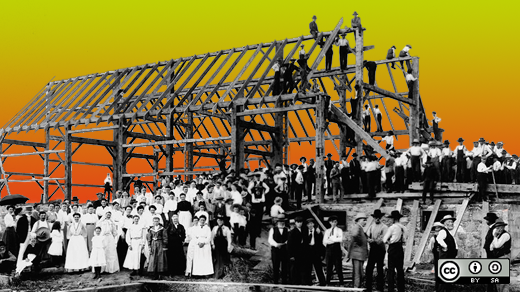If you've ever built an online community, you know that the sheer number of options available can be daunting. Should you set up a forum, a Q&A site, or both? Would users prefer Slack, IRC, or perhaps a mailing list? Where does Telegram fit in? Maybe you should you just set up one of every available solution...
I'll discuss this topic at length during the upcoming Open Source Summit North America. But in the meantime, let's focus on one aspect to better understand the overall decision-making process.
Forum vs. Q&A
Before you decide on a platform, make sure you understand the strengths and weaknesses, design goals, and workflow of each.
Forum software
Forum software comes in many varieties, which generally fall into one of two categories: traditional options such as vBulletin, phpBB, XenForo, and UBB.threads; and newer options such as Discourse. The former tend to be more hierarchical, include fewer gamification features out of the box, and focus less on social media integrations. The latter usually have a more event stream-focused UI, include baked-in gamification, and integrate more deeply with social media. Keep in mind both can be altered by changing default settings and using add-ons, but if you find yourself fighting the product design, you may want to re-evaluate your choice.
Fora are, of course, conversational and should encourage discussion. That makes them a fantastic solution for building community, debating technical topics, and finding solutions as a group. One downside: A great solution might be buried on page 11 of a long thread, so it can be challenging for participants to find the answers they seek.
Q&A platforms
Enter Q&A platforms. By design, these are not conversational—rather, they allow users to ask questions (which can often be refined), and other users offer answers. While some discussion can take place via comments, most Q&A sites develop a culture that dissuades broad conversation in lieu of finding direct answers, which participants vote on. Answers do not appear chronologically, as in a forum, but by rank. Gamification is almost always built into the platform, usually in the form of badges or some form of reputation or karma. While a Q&A site can excel at offering quality answers quickly, the lack of conversation makes it less suited for building a community with deep roots, as such communities typically require that people get to know each other through discussion.
So, which platform should you choose—or should you have one of each?
There is no one correct answer for everyone, but here are questions to help you decide:
- First, what are you trying to accomplish?
- Will your community respond well to gamification, or will it encourage behavior you don't want?
- How many people will be participating? Spreading your community too thin means an empty forum with a lot more Q's than A's.
The answer to these questions will vary significantly for each community. As with most community decisions, understanding your community is the key.
I hope to see you in Los Angeles at the Open Source Summit to further discuss how other platforms fit into this discussion and how to decide which ones are best for you.







6 Comments